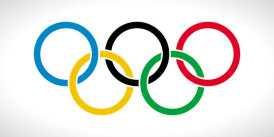Olympic Cricket
Gulu Ezekiel |
It’s no secret that the International Cricket Council (ICC) is keen that cricket, in the form of T20 be re-introduced into the Olympics and that standing in its way is the mighty Board of Control for Cricket in India (BCCI) for a myriad of reasons.
As most avid cricket fans are aware, cricket was played at the Olympics just once and that was in Paris of all places, in the second Olympics of 1900.
‘Great Britain’ beat ‘France’ in the only match for first and second place, the former consisting of English club cricketers from the Devon and Somerset Wanderers club which was touring France at the time. For the record, ‘Great Britain’ won by 157 runs after ‘France’ were skittled out for a measly 26 in their second innings (the match was played 12-a-side).
The British team had been founded by William Donne of Castle Cary six years earlier and was centred round the Castle Cary Cricket Club which provided five players as well as former pupils of Blundell’s School in Devon. The club in 2011 celebrated its 175th anniversary with a reenactment of the famous match. The French club was known as the Union des Societes Francaises de Sports Athletiques team. It was made up of players from the Standard Athletic and Union Clubs though other reports indicate it consisted mainly of British expats from the Embassy in Paris and included just one Frenchman.
Initially teams from France, Belgium, Holland and Great Britain were to participate but the organization of the Paris Games was chaotic and finally it was left to just these two teams.
But now Wales-based International Society of Olympic Historians (ISOH) member Hilary Evans has discovered cricket was slated to be played at the third Olympics at St. Louis, USA in 1904 as well
The dates released in the preliminary programme were September 12-13 and 14-15. So why was it cancelled, never to return again to the Olympics fold?
Evans has unearthed a report from the St. Louis Republic daily dated 18 July 1904 which states: “The Olympic cricket championships will be held the second week September…and will form an important part of the month’s programme. Entries have already been received from the Associated Cricket Club of Philadelphia [the bastion of cricket in America at the time] and many other prominent cricket clubs throughout the Eastern States and it is expected that a prominent Canadian cricket club will take part in the championship. England, the home of cricket, will probably send two or more teams to compete for the championship banner.”
It is a fact that after the successful staging of the first games of the modern era at Athens, Greece (where ancient Olympics originated) in 1896, Baron Pierre de Coubertin, the father of the modern Olympics, wanted Athens to be the permanent venue for all future Games. That of course did not happen and the 1900 and 1904 Olympics at Paris and St. Louis, which were staged in conjunction with the ‘World’s Fair’ were so chaotic that the entire modern Olympics movement was imperiled virtually at its birth.
There were very few National Olympic Committees (NOCs) till the 1920s and before that many entries were from clubs and individuals.
A report then appeared in the New York Tribune dated 30 August 1904 that cricket had been cancelled. ‘Good wicket couldn’t be got ready in time, it is announced’ was the headline for the report that stated: “Although every effort has been made to get a ground in readiness, it was found impossible to prepare a wicket suitable for matches to decide the championship of the United States (sic), and rather than play these on a poor ground, it was decided to abandon the whole project.”
The teams that were to be entered from England are not known but according to Evans, it is doubtful if these would have been county sides since the Olympics were strictly for amateurs, and so were probably amateur sides like I Zingari club side and others of its ilk.
One notable name was to represent Philadelphia. As reported in the famous journal Cricket: A Weekly Record of the Game (1 Sept. 1904), which was published from 1882 to 1914, John Barton ‘Bart’ King was part of the team. A fast bowler famed for his late in-swinging deliveries, he is considered even today the greatest cricketer to come from a non-Test playing nation, being also an exceptional batsmen.
King had great success while touring England three times with the ‘Philadelphia Gentlemen’ side (1897, 1903, 1908) and on his first tour he bowled the legendary KS Ranjitsinhji (‘Ranji’) for a first-ball duck while playing against Sussex.
The ICC is still hopeful that cricket could be included in the 2028 Olympics, venue yet to be decided. But there are formidable challenges ahead.
Gulu Ezekiel is an independent sports journalist and author based in New Delhi and has written over a dozen sports books.






Leave a comment